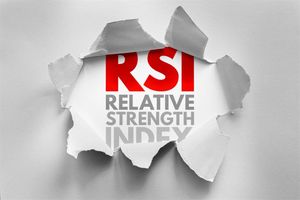CHICAGO, Feb. 21, 2023 (GLOBE NEWSWIRE) -- Numerator, a data and tech company serving the market research space, has released its Food Culture In the Black Community report in honor of Black History Month. The report leverages omnichannel purchase data, Numerator psychographics, and a sentiment survey of 500+ Black consumers to understand the impact of food culture on consumer behavior. Overall, almost 7 in 10 Black consumers express their cultural identity through food and cooking and are more likely to shop for groceries online and engage with food-related media than the average consumer.
Consumer Behavior & Sentiment Findings:
- The majority of Black consumers say food is a form of self expression – with heritage evident in the products they buy. Nearly 7 in 10 (68%) of Black consumers say they express their personal or cultural identity through food and cooking. Compared to all consumers, Black consumers are more likely to purchase foods such as fresh mustard greens (191% more likely to buy than all consumers), fresh okra (89% more likely), black-eyed peas (72% more likely), white rice (14% more likely) and fresh yams (12% more likely) – historically significantly ingredients referred to as “soul food.”
- Grocery baskets that include soul food ingredients are three times larger than the average grocery trip. Among Black consumers, the average spend per trip with soul food products in the basket is $79.17, compared to just $25.37 when these items are not present.
- Black consumers drive increases in soul food sales around summer cookouts and holidays. In 2022, nearly two-thirds (62%) of Black consumers said they attended a family or community cookout. During the summer months, when these gatherings are most likely to occur, soul food grocery categories also see a spike in sales. Black consumers are also 29% more likely to make Labor Day purchases and 18% more likely to make Memorial Day purchases compared to the average shopper.
- Black consumers prefer grocery stores that offer convenience, value and culturally relevant foods. Three-quarters (75%) of Black consumers say good value is an important aspect when choosing a grocery store, followed by budget-friendly (62%), variety (59%), convenience (52%) and proximity to home (45%). More than one-third (35%) of Black consumers say they prefer to shop at stores that carry culturally relevant foods and ingredients.
- Walmart captures nearly one-third of all soul food grocery trips. While Walmart captures 13.8% of all grocery trips among Black consumers, that jumps to 31.7% of grocery trips with soul food items in the basket. Walmart is followed by Kroger (10.2% of soul food grocery trips), Ahold Delhaize (7.5%), Albertsons (4.7%) and Publix (3.5%).
- Black consumers are more likely than the average consumer to shop for groceries online. Black consumers are 33% more likely to use online grocery delivery services and 18% more likely to use grocery in-store pickup, compared to the average consumer. They are 21% more likely to be early adopters of new shopping services and 36% more likely to say that shopping online for everyday items is enjoyable.
- When dining out, 75% of Black consumers say they are likely to choose restaurants that offer soul foods. Nearly one-third (32%) of Black consumers say they are budget-focused when dining out, and 20% say they are willing to pay for convenience.
- McDonald’s, Wendy’s and Starbucks capture the highest percentage of Black consumers’ fast food spend. McDonald’s captures 18% of Black consumers’ quick-service restaurant spend, followed by Wendy’s (6%), Starbucks (6%), Burger King (5%), Popeyes (5%) and Chipotle (4%).
- Black consumers are more likely to engage with food-related media and entertainment. Compared to all consumers, Black consumers are 28% more likely to read cooking or food magazines, 26% more likely to watch cooking or food television programs and 8% more likely to use food and drink mobile apps. They are 22% more likely to watch the Food Network and 16% more likely to read Better Homes & Gardens magazine.
The Food Culture in the Black Community report sources data from Numerator Insights (last 12 months ending 12/31/22) and a sentiment survey fielded 01/27/23-01/28/23 to 506 Black consumers.
About Numerator:
Numerator is a data and tech company bringing speed and scale to market research. Numerator blends first-party data from over 1 million US households with advanced technology to provide 360-degree consumer understanding for the market research industry that has been slow to change. Headquartered in Chicago, IL, Numerator has 2,000 employees worldwide; 80 of the top 100 CPG brands’ manufacturers are Numerator clients.

Bob Richter Numerator 212-802-8588 press@numerator.com





